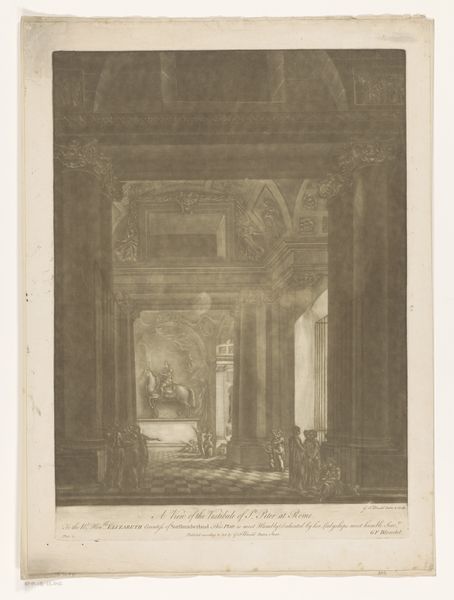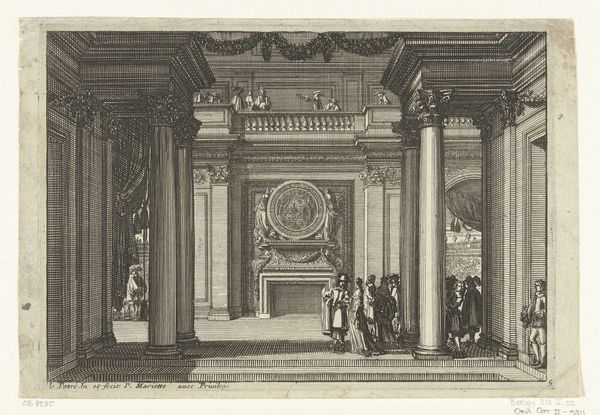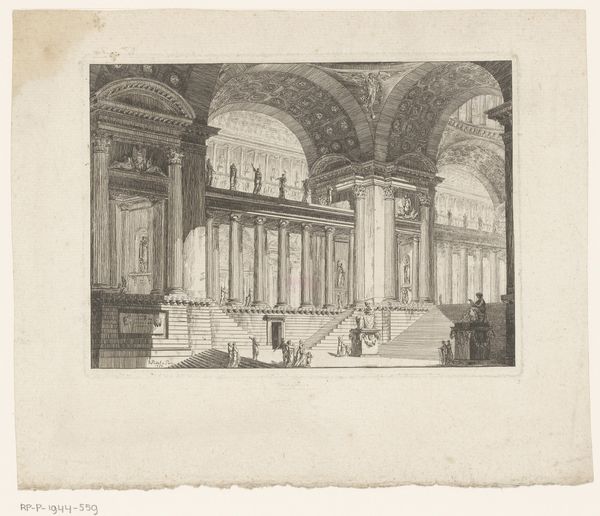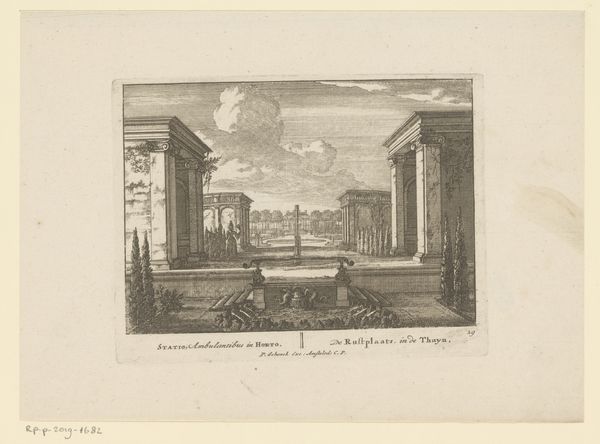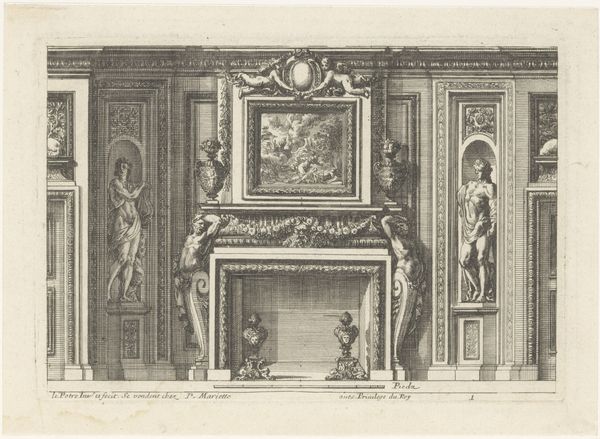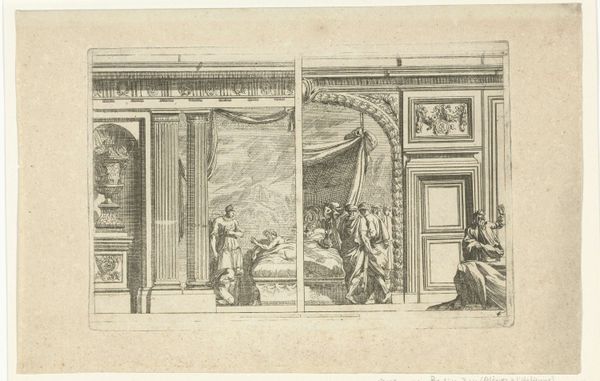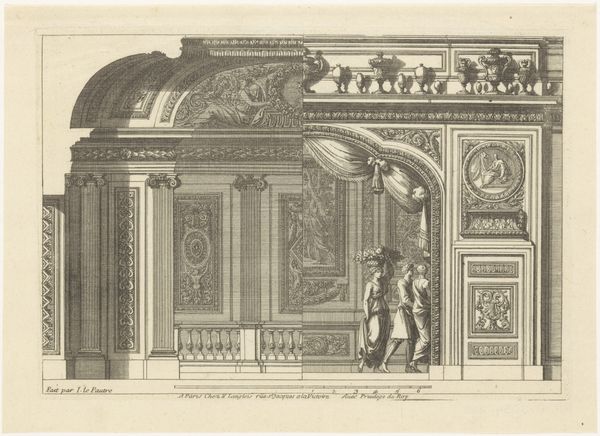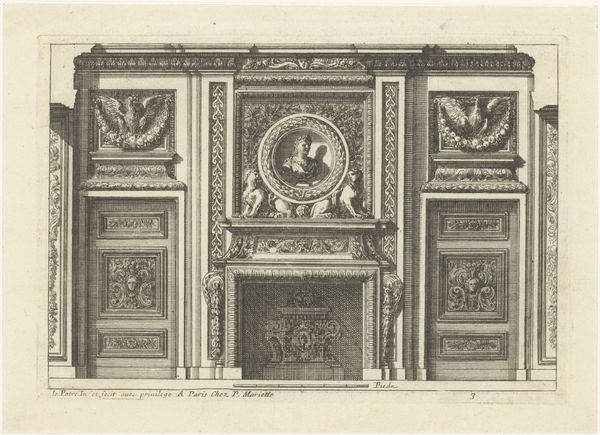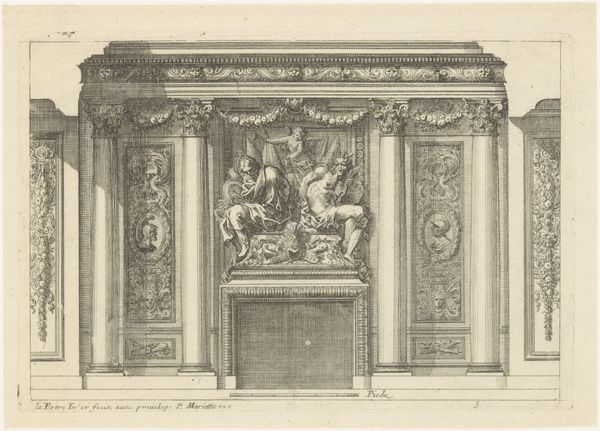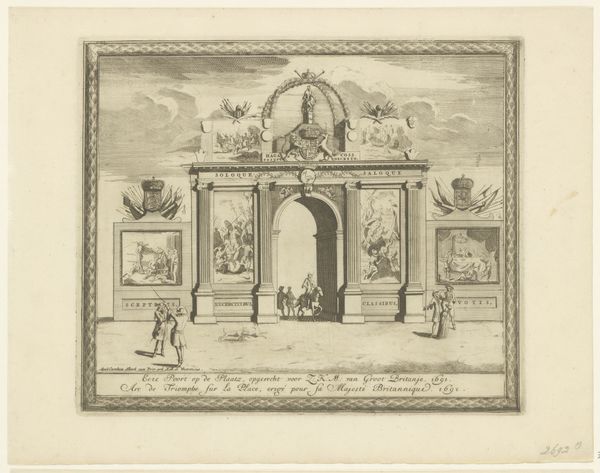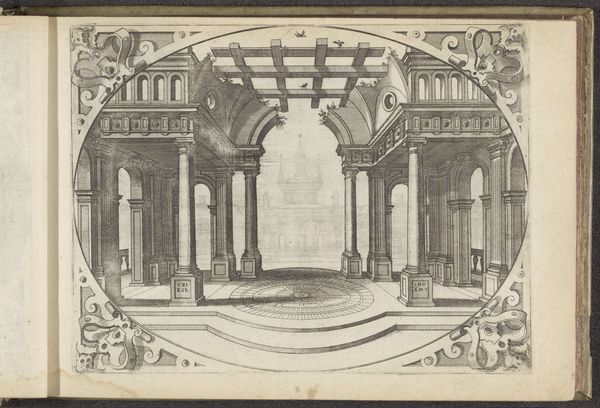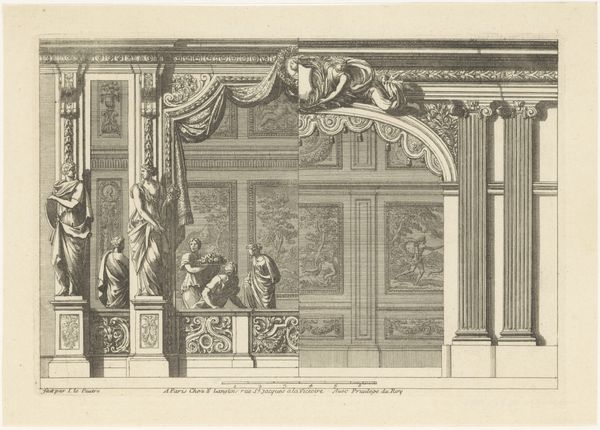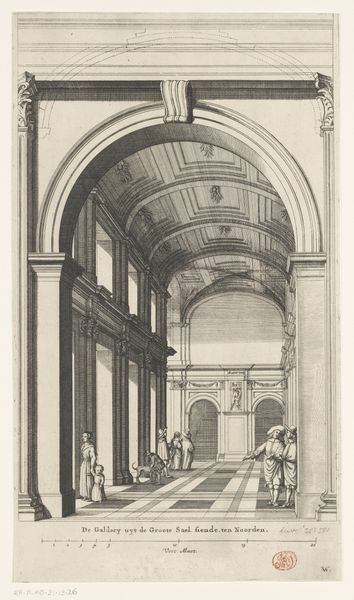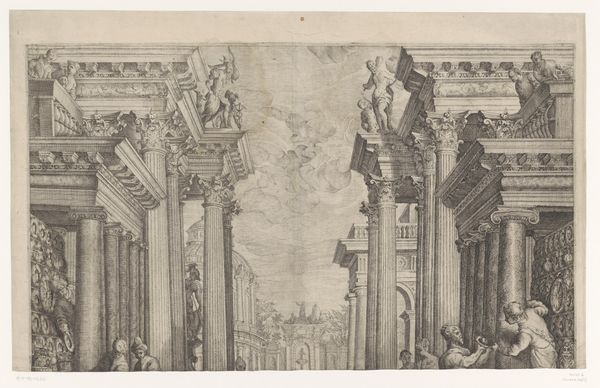
print, paper, engraving
#
baroque
#
ink paper printed
# print
#
old engraving style
#
landscape
#
paper
#
pen-ink sketch
#
cityscape
#
engraving
Dimensions: height 169 mm, width 197 mm, height 238 mm, width 406 mm
Copyright: Rijks Museum: Open Domain
Curator: Looking at this engraving from 1728 by Laurens Scherm titled "Gezicht op Paleis Het Loo over de oprijlaan", or "View of Palace Het Loo over the driveway," I’m struck by how carefully it seems to depict a highly regulated landscape. Editor: Absolutely, the first thing I feel is the absolute power oozing from this thing. Like, you can almost smell the powdered wigs and perfectly symmetrical everything! But tell me, beyond the wigs, what makes it so regulated in your view? Curator: The symmetry for starters, right? The mirrored rows of trees, the rigid geometry of the architecture, all point towards an era obsessed with order and control, reflecting a certain political ideology of its time. Everything feels positioned to communicate power and a strict societal hierarchy. Think about court rituals. Editor: Yeah, it's totally staged. You can almost hear someone shouting "More symmetry!" but you know, even staged things can feel true sometimes. Look how the artist played with light. It feels almost hopeful with those figures strolling. And it gives life to a scene that otherwise may feel utterly static. What do you read into these characters? Curator: These are likely members of the aristocracy and their attendants. Depicting them prominently signals that access to beauty, leisure, and even the landscape itself was carefully policed, reserved only for those in positions of power. In essence, it speaks volumes about social exclusion, though maybe the artist didn't intend it that way. Editor: Possibly not, and who’s to say if we will ever know for sure… Still, to me, that’s what makes art so interesting! Sometimes intention becomes irrelevant. To think, a few simple lines etched onto paper centuries ago, and here we are reading into social issues. Pretty neat if you ask me. Curator: Precisely! We’re peeling back layers of history, not just viewing a pretty picture. Considering the politics ingrained in seemingly harmless depictions of landscapes remains relevant today, urging us to question whose perspectives are historically represented, and whose are conveniently erased. Editor: I'll definitely walk away from this piece today with a little more pep in my step. If a humble etching can hold that much story, imagine the stories we ourselves hold.
Comments
No comments
Be the first to comment and join the conversation on the ultimate creative platform.
